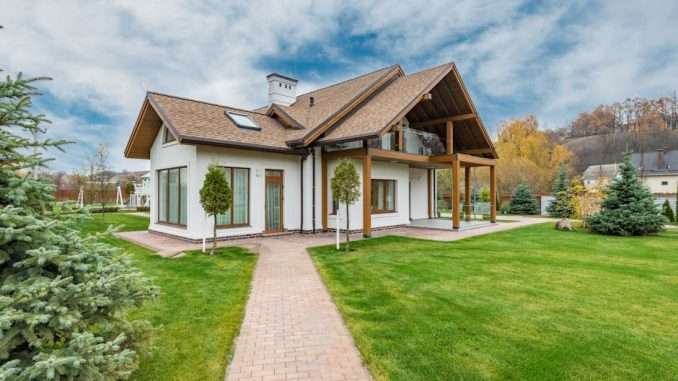
In the ever-evolving construction industry, sustainability has transcended beyond being a mere buzzword; it has emerged as a fundamental necessity. The forthcoming Level(s) online conference stands as a pivotal event for industry professionals, promising to revolutionise the methodologies employed in designing, constructing, and deconstructing buildings. This event will offer a comprehensive exploration of the Level(s) framework, a robust tool crafted to assess and ameliorate the environmental performance of buildings at every stage of their lifecycle. From inception to end-of-life, Level(s) provides a structured approach to embedding circular economy principles into construction projects, heralding a new era for sustainable construction.
The Level(s) framework is meticulously designed to cater to a diverse array of professionals, encompassing designers, planners, financiers, and builders. It aims to elucidate the intricacies of this innovative framework and its practical applications. The conference will scrutinise how the Energy Efficiency Directive (EED) incentivises Member States to adopt a lifecycle perspective while procuring public buildings. By emphasising the ‘energy efficiency first’ principle, the EED aspires to substantially curtail EU energy consumption by 2030 and foster local heating and cooling plans, aligning seamlessly with the principles of Level(s).
Within the expansive realm of sustainability, enterprises are mandated to align their disclosures with the EU Taxonomy Regulation according to specific deadlines, contingent upon their size and directives. The Taxonomy Regulation delineates the criteria for economic activities to qualify as environmentally sustainable. Supplementing this, the Climate Delegated Act mandates the reporting of Global Warming Potential at each lifecycle stage for certain construction activities. Concurrently, the Environmental Delegated Act stipulates the utilisation of Level(s) indicators for construction and real estate activities contributing to a circular economy.
The New European Bauhaus initiative, envisioned to reshape Europe around sustainable living, inclusion, and aesthetics, finds a natural ally in the Level(s) framework. By applying circular economy principles in the built environment, Level(s) supports the initiative’s vision from concept to completion. The framework’s flexibility ensures its adaptability throughout a building’s lifecycle, fostering continuous enhancements in sustainability.
For those unfamiliar with the framework, the Level(s) eLearning course offers an exhaustive overview, equipping professionals with the requisite tools to commence applying the principles in their work environments. Additional support is available through the Level(s) Calculation and Assessment Tool (CAT), designed to assist in completing sustainability performance assessments. Furthermore, the Level(s) helpdesk provides multilingual support for building sustainability inquiries, ensuring that professionals across Europe can access the guidance they require.
The Level(s) LinkedIn Group functions as a dynamic platform for sharing experiences and discovering the latest tools and events related to the framework. This community-driven approach encourages collaboration and knowledge exchange among professionals dedicated to sustainable building practices.
Greenlab epitomises the practical application of the Level(s) methodology in real-world projects. The organisation has integrated Level(s) into both internal staff training and external conferences, extensively promoting its use and benefits. Currently, Greenlab is applying the framework to two residential projects in the Lisbon Metropolitan Area. The first project’s reporting emphasises occupant welfare, focusing on indicators related to health, comfort, and resilience. Greenlab’s work has evolved to incorporate other assessment methods such as LEED, BREEAM, and life-cycle costing, showcasing a holistic approach to sustainability reporting and transparency in construction projects.
Adopting the Level(s) framework and sustainability more broadly necessitates early involvement and leadership commitment within the real estate sector. Sustainability is increasingly perceived not merely as an expense but as a long-term investment for developers and future generations. The financial sector, too, stands to gain from sustainable financing aligned with Level(s) metrics, underscoring the economic viability of eco-friendly building practices.
The Level(s) Newsletter serves as a rich repository of information, keeping subscribers abreast of the latest developments in sustainability and environmental performance in buildings. The newsletter includes interactive elements like the Level(s) Newsletter Quiz, which tests readers’ knowledge on the environmental impact of buildings. Figures for the quiz are sourced from reputable organisations such as the World Green Building Council, Eurostat, and the Renovation Wave Communication, ensuring the information’s accuracy and insightfulness.
The Level(s) framework transcends being a mere set of guidelines; it is a comprehensive system designed to integrate sustainability into the very fabric of building projects. From regulatory alignment to practical tools and community support, Level(s) provides a solid foundation for achieving environmental performance goals. As the construction industry continues to evolve, frameworks like Level(s) will play an instrumental role in shaping a sustainable future, aligning with broader initiatives like the New European Bauhaus and regulatory requirements under the EU Taxonomy Regulation.
The upcoming Level(s) online conference promises to be an essential event for professionals keen to deepen their understanding of sustainable building practices. With a wealth of resources and a supportive community, Level(s) is well-positioned to spearhead the move towards a more sustainable built environment. By embracing the principles of Level(s), the construction sector can make significant strides towards a more sustainable and resilient future, ensuring that sustainability is perceived not just as a cost, but as a long-term investment for the benefit of all.


Be the first to comment